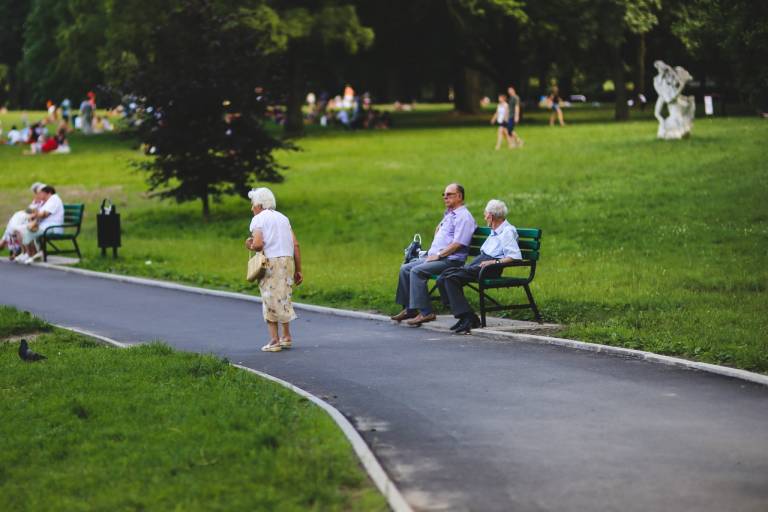UCL submission to Lord’s inquiry into ageing
16 December 2019
UCL researchers have submitted evidence to the Science and Technology (Lords) Committee inquiry into ageing, titled Ageing: Science, Technology and Healthy Living.

Through improvements in healthcare and living standards, people in the UK are living longer than ever before. In 2016, there were 1.6 million people aged over 85 and this number is expected to double by 2041.
While life spans have increased, health spans (the period of time people enjoy good health) has not grown at the same rate. Many older people live the latter portion of their lives with a disability. This physical decline can be accompanied by worsening mental health, including loneliness.
The UK Government wants to ensure that people can enjoy “at least five extra healthy independent years of life” by 2035. In order to achieve this, society needs to adapt to meet older people’s needs and provide them with a better quality of life.
The inquiry’s scope
- The scientific understanding of the ageing process, and how these areas of research could lead to treatments for delaying or managing the negative effects of ageing
- Technologies that can improve health and wellbeing in old age, and technologies that can enable independent living in old age
- Opportunities for the UK to commercialise discoveries and innovations relating to healthier ageing
- The policy implications of a healthier older population
UCL has a wealth of expertise in this area. The university is home to several institutes, centres and individual research groups that centre on understanding the ageing process, diseases of ageing and identifying interventions to prevent or improve the conditions and issues faced by the UK’s ageing population.
Technology to support healthy ageing is a priority area for the Institute of Healthcare Engineering and our Deputy Director (Digital) Prof Ann Blandford was one of the contributors.
UCL's evidence submission
The contributors emphasise the need for a cultural shift when it comes to perceptions of ageing and that this needs to start in education:
“This would make working later in life easier and, for those able to and wanting to work, help their physical and mental wellbeing. The paradigm shift will require policies to enhance health across the whole of life”.
In regards to technology for healthy ageing (including assistive technology), the report describes this as “an enabler not a solution” and must be carefully implemented. More research needs to be done on a global level to make sure therapeutic technology is used safely and effectively.
The contributors also state that digitally-enabled communication (like Skype or a mobile app) needs to add value rather than being used as a “superficial substitute for meaningful interpersonal engagement”.
They describe the following barriers to the development and implementation of technology:
- An image problem: many older people don’t consider themselves ‘old’ and don’t want to buy products marketed to this demographic
- Technology has the potential to worsen the gap between rich and poor people’s experiences and health in older life
- Data privacy and sharing: more thought needs to be given to how assistive technologies use people’s data
- Lack of funding: many assistive technology innovations fail due to a lack of R&D funding, investors and access to user-testing
UCL’s submission was based on contributions from the following members of the UCL community: Professors Ann Blandford, Yvonne Rogers, Nadia Berthouze, Dr Catherine Holloway and Felipe Ramos Barajas from the UCL Interaction Centre and the UCL Global Disability Innovation Hub; Professors Linda Partridge, Nishi Chaturvedi and David Gems from the MRC Centre for Lifelong Health and Ageing (LHA) and the UCL Institute for Healthy Ageing; Professor Diana Kuh, founder and former director of the LHA; and Professor Nick Tyler from the UCL Person-Environment-Activity Research Laboratory and Director of the UCL Centre for Transport Studies.
Due to the December 2019 election, the Committee is now dissolved but will soon be reinstated by the new Parliament.
Read UCL’s written evidence in full.
 Close
Close

